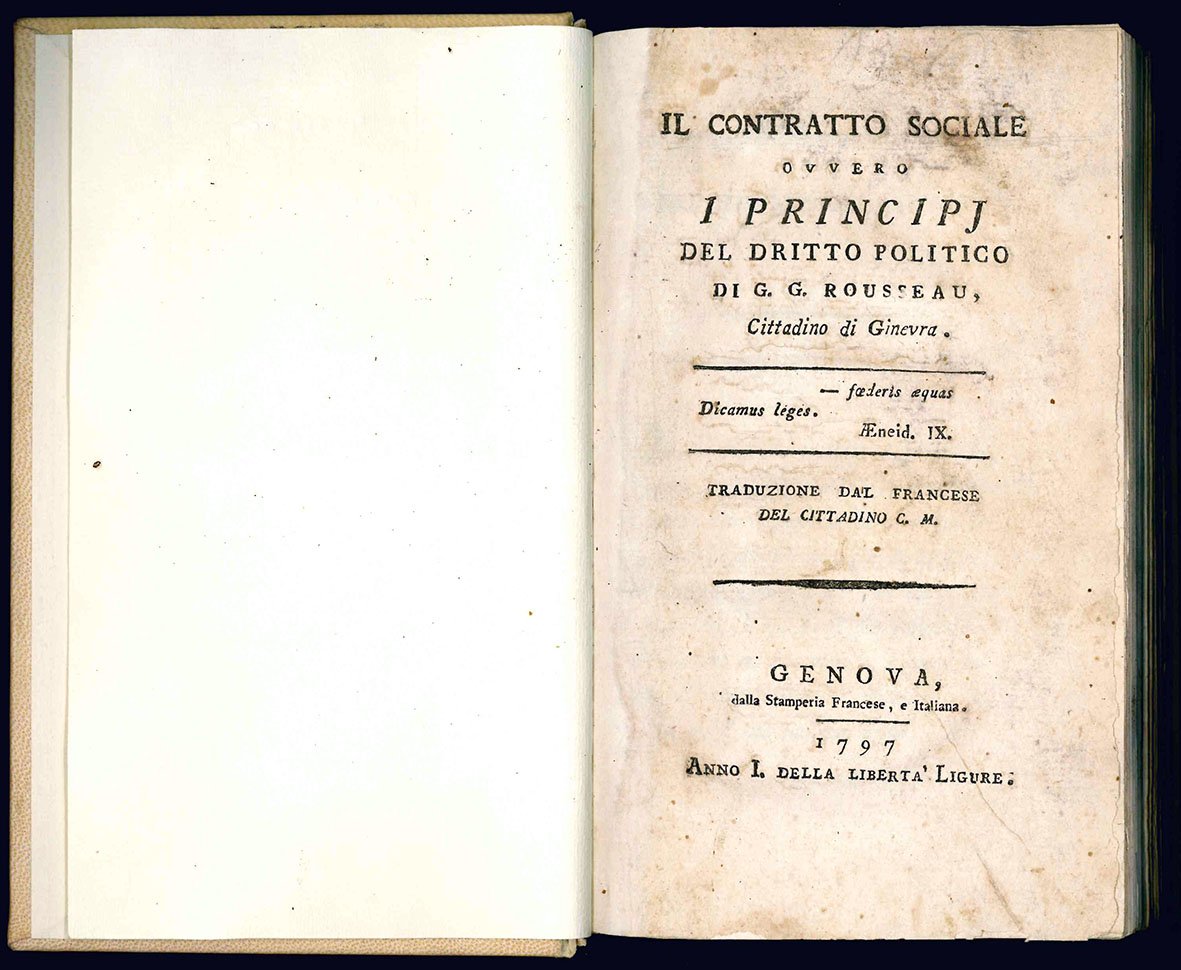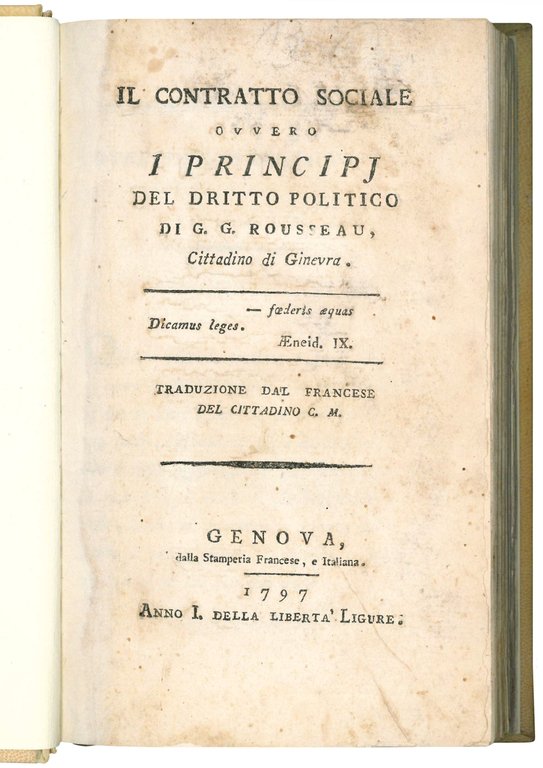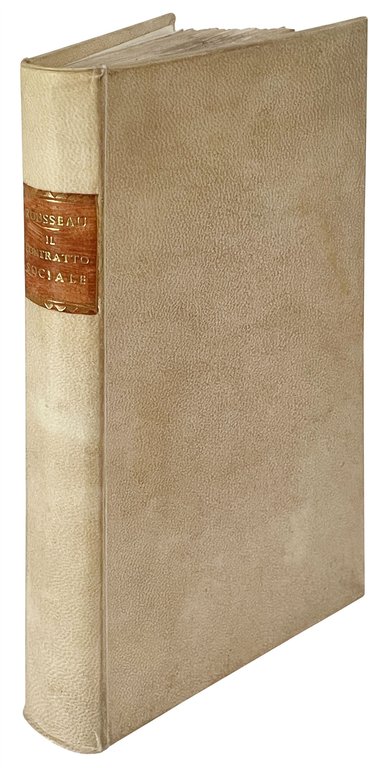


Libri antichi e moderni
ROUSSEAU, Jean Jacques (1712-1778)
Il contratto sociale ovvero i principj del diritto politico di G.G. Rousseau, Cittadino di Ginevra. Traduzione dal francese del cittadino C.M.
dalla Stamperia Francese, e Italiana, 1797 (anno I. della libertà ligure)
380,00 €
Govi Libreria Antiquaria
(Modena, Italia)
Le corrette spese di spedizione vengono calcolate una volta inserito l’indirizzo di spedizione durante la creazione dell’ordine. A discrezione del Venditore sono disponibili una o più modalità di consegna: Standard, Express, Economy, Ritiro in negozio.
Condizioni di spedizione della Libreria:
Per prodotti con prezzo superiore a 300€ è possibile richiedere un piano rateale a Maremagnum. È possibile effettuare il pagamento con Carta del Docente, 18App, Pubblica Amministrazione.
I tempi di evasione sono stimati in base ai tempi di spedizione della libreria e di consegna da parte del vettore. In caso di fermo doganale, si potrebbero verificare dei ritardi nella consegna. Gli eventuali oneri doganali sono a carico del destinatario.
Clicca per maggiori informazioniMetodi di Pagamento
- PayPal
- Carta di Credito
- Bonifico Bancario
-
-
Scopri come utilizzare
il tuo bonus Carta del Docente -
Scopri come utilizzare
il tuo bonus 18App
Dettagli
Descrizione
RARA EDIZIONE del Du contrat social nella traduzione di Celestino Massucco. Questa traduzione, apparsa contemporaneamente a quella di Niccolò Rota (Venezia, 1797), fu preceduta solamente da quella di Giovanni Menini uscita a Parigi nel 1796. Il Conratto sociale è il testo principale in cui Rousseau esprime la tesi fondamentale che un governo dipenda in modo imprescindibile dal mandato popolare. «Rousseau's most important political treatise was The Social Contract (1762), a political matrix and symbol of a wider shift in ideas about the nature of reality, the self, and politics in Western society (W. Gairdner, Jean-Jacques Rousseau and the Romantic Roots of Modern Democracy, in: ''Humanitas''�, vol. 12, 1999, p. 77). «Furthermore, The Social Contract also appears to concur with the argument in Political Economy that the proper politicization of passions is their salvation. While Rousseau offers many criticisms of citizens' private desires, he has none to offer of the general will, the expression of the citizens' public desires. The general will, he contends, is ''always right and always tends toward the public utility''�. The only problem is that the citizens do not always discern the public good, and ''only then does it appear to want what is bad''�. Elaborating on this argument a few pages later, Rousseau contrasts private desire with public desire: ''Private individuals see the good they reject; the public wants the good it does not see''�. In other words, whereas individuals may purposely hold on to desires for bad things, the public only desires such things out of ignorance. Rousseau concludes this argument by asserting the need for a legislator who will enlighten the public, but the point here is the distinction he has drawn between private and public passion. Apparently, in the move from ''I desire''� to ''we desire''�, desire itself is redeemed from any harmful intentions. The ''dangerous disposition from which all our vices arise''� is ''transform[ed] into a sublime virtue''�. Although one might argue that Rousseau does not fully explain why the general will is by definition virtuous, it is clear that the key to its virtue is its generality, its link to the common interest. The private will, he says, ''tends by its nature toward preferences, and the general will toward equality''�. The general will is also, of course, the guarantee of the citizens' freedom. Since equality and freedom are among the supreme virtues in Rousseau's thought, we can begin to see why he praises the citizens' public passion» (C. Hall, Reason, Passion and Politics in Rousseau, in: ''Polity''�, vol. 34, 2001, p. 69 e sgg.).
2OCLC, 39830977. ICCU, ITICCUTO0E 06722. S. Rota Gribaudi, La fortuna di Rousseau in Italia (1750-1815), Torino, 1961, p. 325.

